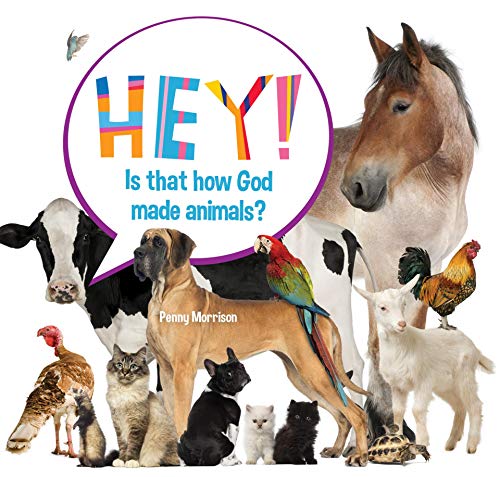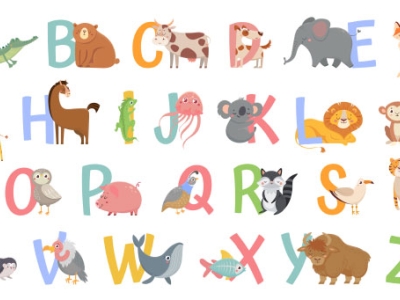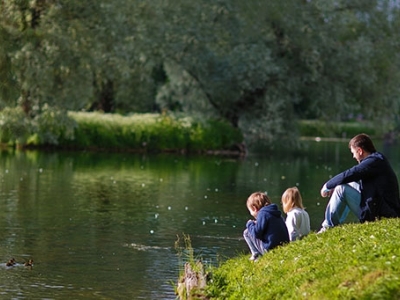
What’s the value of having pets?
Annemarie Rivers reflects on the benefits for families.
The topic of pet ownership does not usually come up in discussions about discipling our children. But I’m more and more convinced that caring for pets can be a valuable part of the picture. Whether it’s a fluffy puppy, a temperamental cat or something more unusual, pets give families a range of opportunities for self-sacrificial service, appreciation of creation and great conversations (with each other, not the pet!). Here’s why I think pets are worth the investment and a few ideas about making the most of our furry (feathery, scaly…) friends.
Opportunity to be others-centred
Pets naturally invite children to show affection and pay attention. Often the desire to care and play is mutual. But inevitably, there are times when the dog needs a walk, or the poo needs to be picked up, or the cage needs cleaning, and no-one really feels like it. Even simple tasks like refilling the water bowl, playing fetch or rubbing a tummy can require exercising the muscles of self-sacrifice. When a child role-plays caring for a baby doll, the toy can be discarded and forgotten when better things draw the eye. But a pet can’t be so easily ignored.
Children won’t suddenly become perfectly responsible as soon as a pet arrives. There is usually a honeymoon period, when everyone is excited to look after the new pet. But after the novelty wears off, the opportunity to care through affection and service will continue. We can encourage children to take seriously their responsibility to care for a pet as it’s part of God’s creation and a gift from him.
There is even a biblical proverb we could learn together:
‘The righteous care for the needs of their animals,
but the kindest acts of the wicked are cruel.’ (Proverbs 12:10)
Joy in God’s good creation
I’m a dog person, I admit it. I can find such joy in watching my dog enjoy his walk, wolf down his dinner or play with my children. These moments remind me how endlessly generous and amazing God is in making a world so full of creatures. Most people have pets because they simply bring joy, even if they don’t acknowledge the Creator who blessed them in this way. How much more wonderful it is to enjoy having pets and turn in thankfulness to our great God? Let’s help our children bring thanks and praise to God for all his good gifts, including our pets.
The Bible explains more about the positive relationship that humans can have with animals as we steward God’s creation. One of the first tasks God gave to humanity was to study and give names to all the animals (Genesis 2:19–20). Later on, God expected his people to treat domesticated animals with compassion, whether they owned them or not (Deuteronomy 22:4; Exodus 23:4–5). Proverbs encourages us to study the animals so that we can learn from them (Proverbs 6:6–8; 30:27–28).
In a similar way, we can encourage our children to study and learn from the characteristics and behaviours they see in their pets and other animals.
Exercise, conversation and comfort
In our household, walking the dog began as a chore, but it has become something I enjoy doing most days. Walking together with children is a great time to chat about life and faith informally. Like driving together, with the added bonus of physical exercise, walking together provides opportunities for discussions without the pressure of expectation. Parents often feel the pressure to be doing regular Bible reading with their children. Reading God’s word is a vital part of discipling our children. But conversations about life where we bring God’s word to bear on the different challenges and issues our kids are facing is also very important.
Even just being with pets can have benefits for children. A friend whose son has special needs and often gets overwhelmed observes that their pets provide comfort and company when he needs time away from people. He is able to regulate his feelings more quickly when having some ‘time out’ with his pets. I expect such benefits extend to all children and adults too.
Is it worth the grief?
But what about when pets die? As I write this, our family is grieving the loss of a family dog that had been with us so long that two of my children don’t remember a time before he arrived. He wasn’t the perfect pet and at times I resented the extra housework he created. Yet I think it will be a long time before I can think of him without a lump in my throat. I am thankful that our family had the opportunity to love him.
Pets will die and the loss is real. In a society where we often want to protect our children from pain and hurt, it can seem like a good choice to avoid the grief of loss when a cat disappears or a dog is put down. We might avoid the grief by never having a pet or by hiding what has really happened to an animal. But this isn’t helpful in the long run. To love genuinely, giving and receiving joy, is a part of life I want my children to experience, despite the cost. Grieving for a departed pet may also help to prepare our children for the experience of losing a beloved family member or friend.
Next time, we will look more at the death of our pets and consider the question of whether they will be with us in heaven.
Do you already have a pet? I hope he or she is already a source of thankfulness in your home. Let me encourage you to see pets as a blessing that creates unique opportunities for growth in our families and helps us to express our God-given stewardship over creation.
---
Annemarie Rivers has three children and has served in children’s ministry in a variety of roles for many years. She now works with the Youthworks Ministry Support Team, training and supporting children’s ministry leaders across Western Sydney.

Hey! Is That How God Made Animals?
This delightfully playful book will teach little ones aged 1–4 to see the wonders of God’s creation as they develop an understanding of their world.
For more articles from Growing Faith, subscribe to our monthly e-newsletter.
To hear about the latest books and resources from Youthworks Media, subscribe here.








